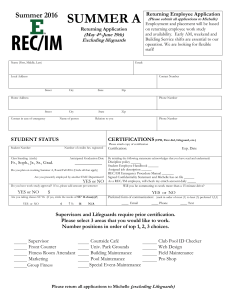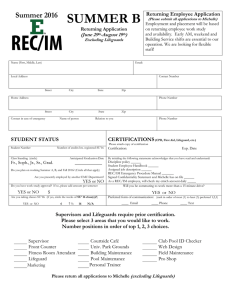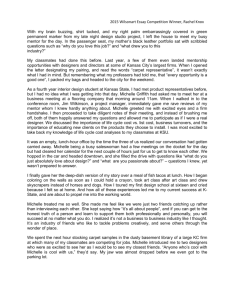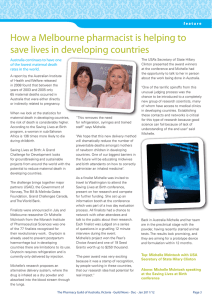Set Yourself Apart: Get Your Project Green Certified to the... Michelle Desiderio
advertisement
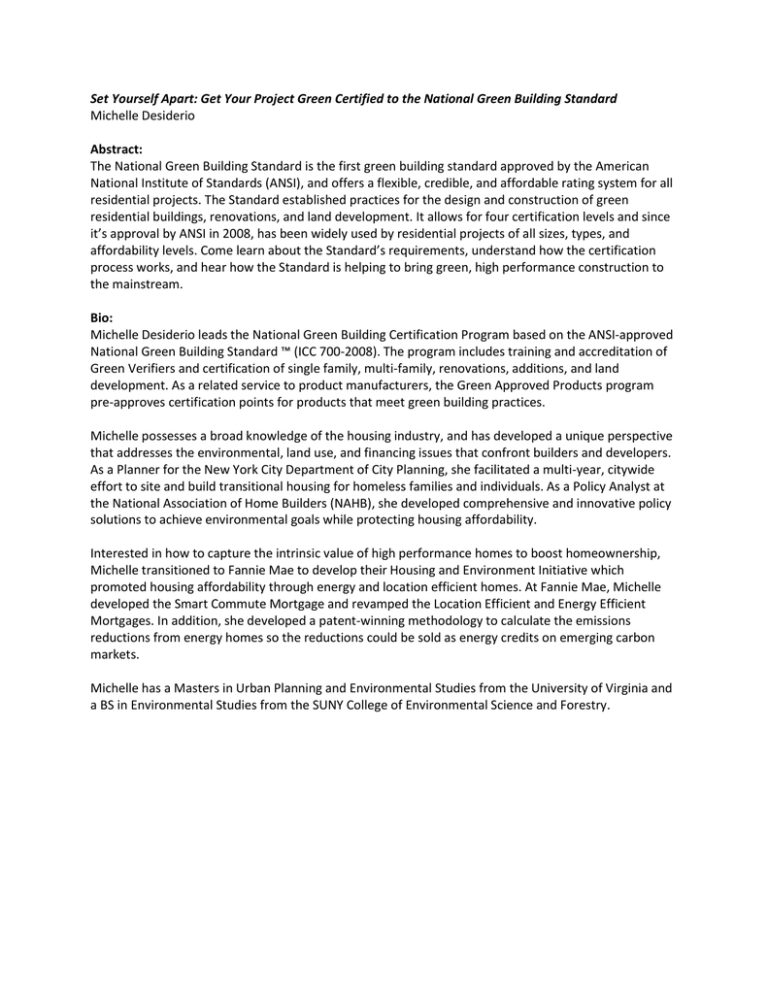
Set Yourself Apart: Get Your Project Green Certified to the National Green Building Standard Michelle Desiderio Abstract: The National Green Building Standard is the first green building standard approved by the American National Institute of Standards (ANSI), and offers a flexible, credible, and affordable rating system for all residential projects. The Standard established practices for the design and construction of green residential buildings, renovations, and land development. It allows for four certification levels and since it’s approval by ANSI in 2008, has been widely used by residential projects of all sizes, types, and affordability levels. Come learn about the Standard’s requirements, understand how the certification process works, and hear how the Standard is helping to bring green, high performance construction to the mainstream. Bio: Michelle Desiderio leads the National Green Building Certification Program based on the ANSI-approved National Green Building Standard ™ (ICC 700-2008). The program includes training and accreditation of Green Verifiers and certification of single family, multi-family, renovations, additions, and land development. As a related service to product manufacturers, the Green Approved Products program pre-approves certification points for products that meet green building practices. Michelle possesses a broad knowledge of the housing industry, and has developed a unique perspective that addresses the environmental, land use, and financing issues that confront builders and developers. As a Planner for the New York City Department of City Planning, she facilitated a multi-year, citywide effort to site and build transitional housing for homeless families and individuals. As a Policy Analyst at the National Association of Home Builders (NAHB), she developed comprehensive and innovative policy solutions to achieve environmental goals while protecting housing affordability. Interested in how to capture the intrinsic value of high performance homes to boost homeownership, Michelle transitioned to Fannie Mae to develop their Housing and Environment Initiative which promoted housing affordability through energy and location efficient homes. At Fannie Mae, Michelle developed the Smart Commute Mortgage and revamped the Location Efficient and Energy Efficient Mortgages. In addition, she developed a patent-winning methodology to calculate the emissions reductions from energy homes so the reductions could be sold as energy credits on emerging carbon markets. Michelle has a Masters in Urban Planning and Environmental Studies from the University of Virginia and a BS in Environmental Studies from the SUNY College of Environmental Science and Forestry.



